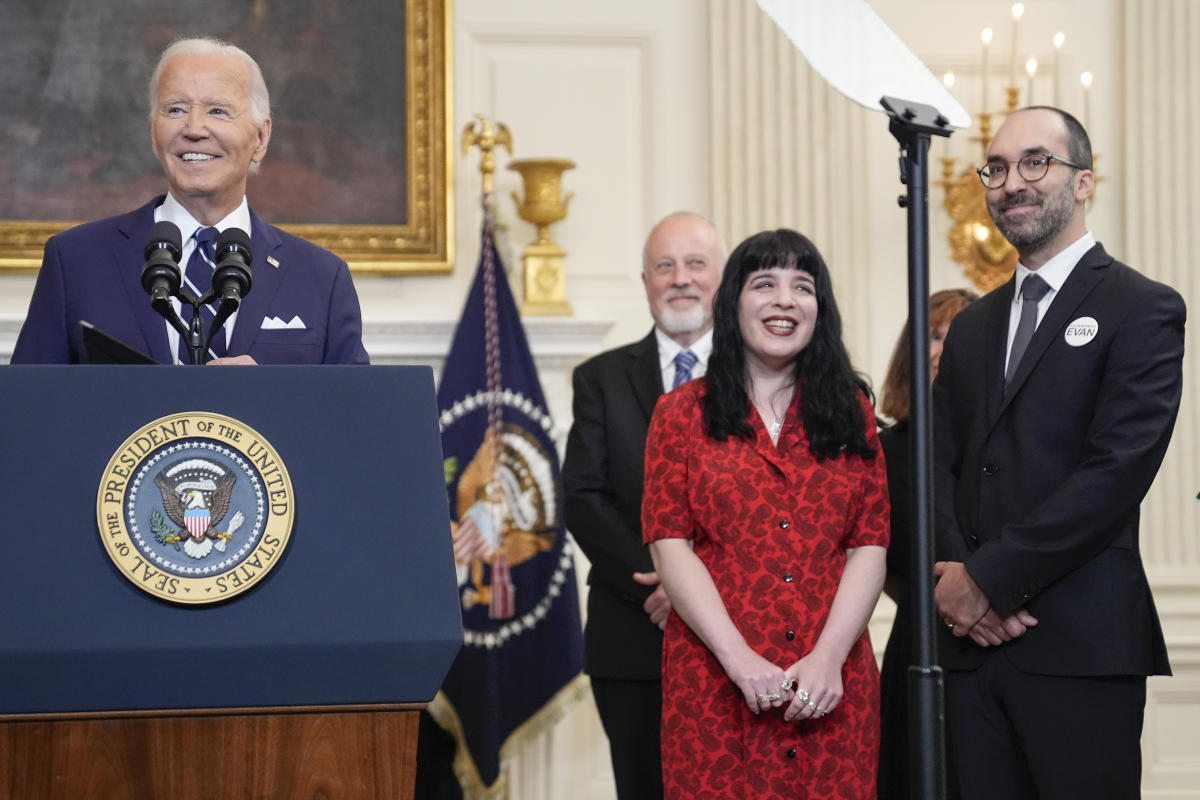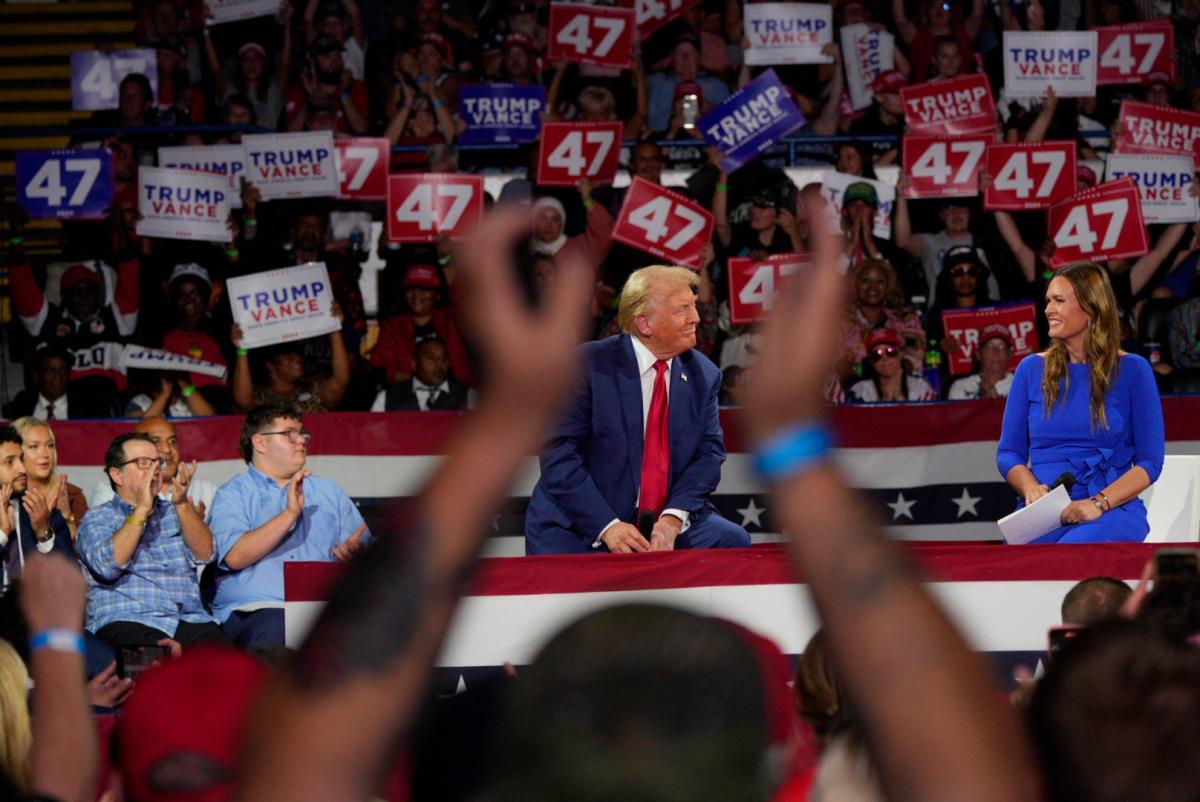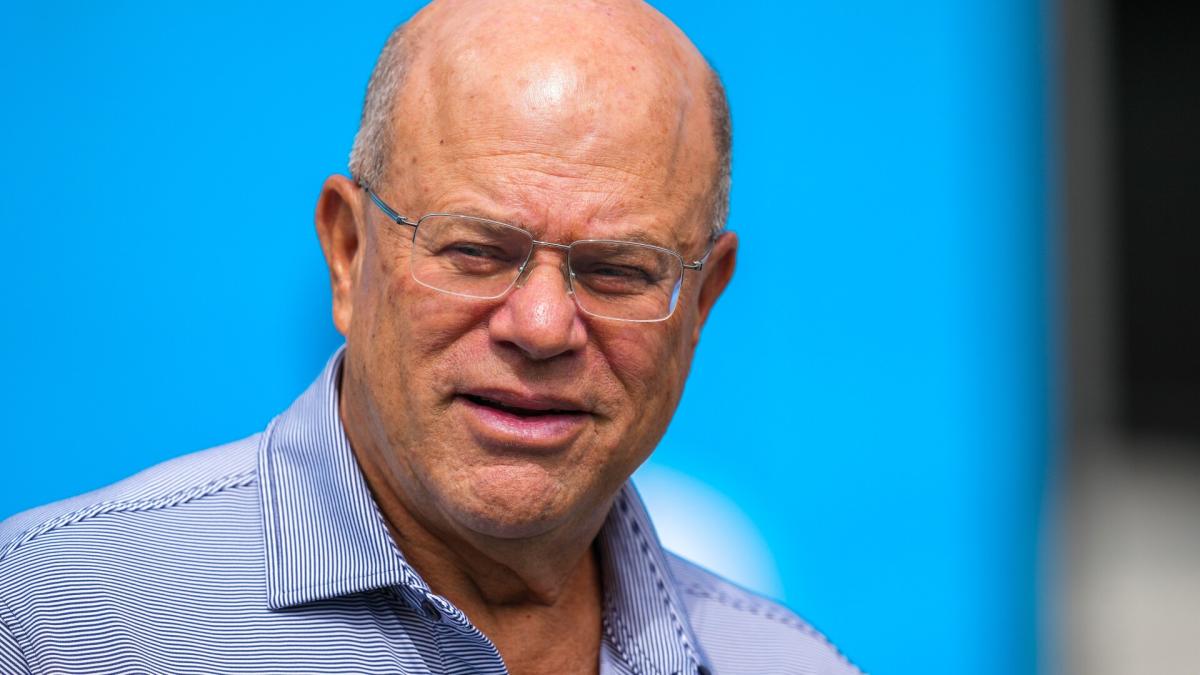President Joe Biden’s mind was elsewhere as he watched the fireworks explode in the sky above the White House on July 4.
Two epic sagas were unfolding behind the scenes. Both would come to help define his presidency. A U.S.-brokered international prisoner exchange was coming together, and his campaign was falling apart.
Biden, his aides said, appeared that day to be focused on only one of those issues — bringing home three Americans detained in Russia: Evan Gershkovich, Paul Whelan and Alsu Kurmasheva.
And for those listening to Biden’s remarks on the South Lawn that day, the secret negotiations added extra heft to his traditional sign-off: “We gotta just remember who the hell we are,” he said. “We’re the United States of America.”
Privately, Biden and his inner circle were on edge, uncertain exactly where the next few weeks would lead. They calculated that how they handled the month of July was crucial for him politically and personally. And the one thing that might have shown the American public the president was very much engaged in governing was something they couldn’t talk about.
“What people didn’t know was how much was going on behind the scenes on the foreign policy front,” a U.S. official said. “And it required the president’s attention at every turn. He was involved in every discussion.”
The deal to free Americans from Russian custody was underway well before Biden’s disastrous debate performance on June 27, and U.S. officials stressed that the president’s calculations on the swap were not affected by his considerations of whether to step down.
But the two are connected. The timing of the two precarious negotiations means they are paired together in the memories of many on Biden’s team, perhaps with at least some sense of “we told you so.”
On July 21, one of the lowest days of Biden’s presidency, the knowledge he might finally fulfill a foreign policy promise that had long eluded him offered a lone — if oddly timed — bright spot.
“On that day, on the Sunday that he announced that he wasn’t going to run — in those same hours, he was dealing with this issue and making calls,” said U.S. Ambassador to Turkey Jeff Flake. “I thought that was quite extraordinary, something he’d been working on, obviously for a long time, having to close it out and get it done at the same time he was announcing — that had to be bittersweet for him.”
Biden would have to wait more than a week after his announcement to share the news with the world.
This story is based on interviews with 13 officials, staffers and diplomats, most of whom were granted anonymity to speak freely about the inner workings of the Biden White House. They detailed how the White House dealt with one risky global negotiation while coming to terms with the fact that the man leading the effort was likely going to have to end his long political career.
Getting to yes
As the calls for Biden to abandon his bid for a second term grew louder in the second week of July, the president became even more defiant that he’d stay in the race.
“I’m not going anywhere,” Biden told “Morning Joe” in an interview July 8.
And he continued to express confidence in private that the prisoner-exchange would go through.
On July 9, the day after that interview, European officials flocked to Washington for the annual NATO meeting. National security adviser Jake Sullivan and Secretary of State Antony Blinken and their staff used it as a chance to speak with German counterparts about the proposed swap.
By that time, the Russians had indicated through intelligence channels with the U.S. that it was ready to move forward with the prisoner exchange.
“When that happened, it was all hands on deck,” one U.S. official said.
The deal had been in the works for more than a year. Following the release of WNBA star Brittney Griner, Sullivan and Biden devised a plan to get back more American hostages from Russia, including Gershovich and Whelan.
When Russia rejected an initial proposal in January 2023, Sullivan concocted a strategy that would pull in various countries in Europe, primarily Germany. If the U.S. could expand the deal, it might allow for more room at the negotiating table.
But the Russians presented another hitch in Sullivan’s planning: They told the U.S. in March 2023 they wanted Vadim Krasikov, a colonel in the FSB who killed a Chechen dissident in 2019, freed from prison in Germany. Days later, Gershovich was arrested in Russia on March 29, 2023.
Throughout the rest of that year, Sullivan and CIA Director Bill Burns spoke several times with counterparts in Europe and in Russia to try and work out a way to get the deal done. The biggest obstacle for Washington: Getting German Chancellor Olaf Scholz to agree to release Krasikov. His government was not receptive to that idea at first, according to another U.S. official.
After much pressing, the Germans relented. And in early June, the White House did a final push to get the Russians to agree to the prisoner swap. The Russians signed off on the deal in mid July, the first U.S. official said.
But as the final stage of the negotiations unfolded, Biden was in the midst of trying to fend off a mutiny from inside his party.
A political crisis unfolds
Following his stumbling and shaky late June debate performance, lawmakers on Capitol Hill and others in Washington called for him to step aside. First, it was the Republicans. Then, slowly, came the Democrats, including Rep. Nancy Pelosi (D-Calif.) and Sen. Chuck Schumer (D-N.Y.).
Biden dug in. He appeared on stage at a rally in the days following his debate, saying though he was older, he was still a strong candidate. Aides rushed to his defense, telling reporters he was still fit for office — and that he was the one Americans needed to navigate difficult global moments.
“On every issue that is of critical importance to the world … foreign leaders have been turning to him as they always have. And when I speak to our most important allies and leaders, they have all expressed his confidence in his ability to do the job today,” Amos Hochstein, a senior adviser to Biden working on Middle East issues, told POLITICO last month.
Officials inside the White House described the middle of July as one of the most intense two weeks of their entire time working in the Biden administration.
They were working behind the scenes on the prisoner swap, trying to rescue a faltering cease-fire negotiation in the Middle East, dealing with fallout from the assassination attempt on President Donald Trump and trying to convince America that its leader was still fit to lead.
It was a remarkable turn of events that tested even the most politically battle-worn staffers and officials.
By mid-July, the chorus of people calling for Biden to leave had grown to a crescendo.
But while the political crisis consumed his campaign team, Biden’s national security staff were occupied with trying to finalize the final logistical details of the prisoner swap.
Biden was navigating both of these challenges with the added burden of having to do it from afar; he’d tested positive for Covid during a campaign swing, forcing him into an extended period of isolation at the most inopportune moment.
Sullivan, who was at the Aspen Security Conference in Colorado, defended Biden on stage during his panel saying, “I am damn glad we have that guy sitting at the head of the table in the Situation Room.”
On the sidelines of the conference he was making last-minute calls to European colleagues about the prisoner exchange.
There was a chance at that moment that the Russia deal could all fall apart.
A legal snafu in Slovakia risked upending the entire deal. The details of that issue are still murky, but it included getting the Slovakian courts to allow for the release of the Russian prisoner.
On July 21, still recovering from Covid and holed up at his Delaware beach home for a fifth straight day, Biden called Slovenian Prime Minister Robert Golob to convince him to move quickly to resolve the problem so that the Russian imprisoned in the country could be released along with the rest.
By that point, Biden had already decided to end his political career, a reversal he had come to terms with the night before and made final earlier that morning. His conversation with Golob would be one of his last, and perhaps most consequential, calls before going public.
The hostage deal was final in all but a few logistical details that day. But it was kept secret until Americans actually were transferred out of Russian custody on Thursday.
A win for the Biden approach to the world
Officials across the administration had spent months working toward the agreement in fits and starts — a bumpy process that Sullivan attributed to the realities of delicate international discussions, rather than the political trials that Biden was enduring closer to home.
“The different elements coming together was a feature of the diplomacy and the decision making of each of the countries involved,” Sullivan said on Thursday. “It wasn’t about American politics, the American political calendar, the president’s thinking on other issues.”
Since the announcement about the deal, White House officials have insisted the prisoner swap was a deal only Biden could have pulled off.
The deal, they argue, could not have been without alliances, which Biden has prized and Trump has questioned.
“This exchange is not by accident. It really is the result of a heck of a lot of leadership by President Biden and by the strength of relationships,” one of the U.S. officials said.
Or, as Fiona Hill, a former senior Russia adviser to Trump who has since become a fierce critic, put it: “The Germans would be very unlikely to do this for Trump.”
At the podium Thursday, surrounded by the family members of the American prisoners, Biden acknowledged how he relied on his colleagues overseas to help clinch the deal that could define his presidency’s final months.
“The deal that made this possible was a feat of diplomacy and friendship,” Biden said. “I can think of nothing more consequential.”
Matt Berg, Miles Herszenhorn and Nahal Toosi contributed to this report.

Amanda Smith is a dedicated U.S. correspondent with a passion for uncovering the stories that shape the nation. With a background in political science, she provides in-depth analysis and insightful commentary on domestic affairs, ensuring readers are well-informed about the latest developments across the United States.







